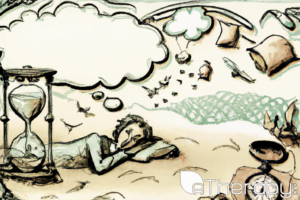 Ever felt like a juggler trying to keep all your life’s balls in the air, only to find yourself swamped and struggling to maintain balance? This scenario, familiar to many, is a clear indicator of stress creeping into our daily lives. Hans Selye, known as the ‘father of stress research’, astutely observed:
Ever felt like a juggler trying to keep all your life’s balls in the air, only to find yourself swamped and struggling to maintain balance? This scenario, familiar to many, is a clear indicator of stress creeping into our daily lives. Hans Selye, known as the ‘father of stress research’, astutely observed:
It’s not stress that kills us, it is our reaction to it. – Hans Selye
In this article titled “Tired of Being Stressed?”, we set out to unpack the complexities of stress. We aim to deepen your understanding of stress’s impact, help you recognize its signs, and most importantly, guide you through practical and effective strategies to manage and alleviate it. Whether you’re grappling with work pressures, relationship dynamics, or the countless demands of modern life, this piece is designed to arm you with the tools and knowledge needed to navigate these stressors more effectively. Get ready to shift your perspective on stress, transforming it from an overwhelming force to a manageable and controllable part of your everyday existence.
Understanding Stress and Its Impacts
In our fast-paced world, stress has become an almost constant presence in many people’s lives. But to effectively manage stress, it’s essential to understand what it really is and how it can impact us over time.
What is Stress?
Stress is our body’s response to perceived challenges or demands. It functions like an internal alarm system, initiated by the brain, which then triggers a cascade of hormones such as adrenaline and cortisol. This ‘fight or flight‘ response prepares the body to face or escape immediate threats. It increases heart rate, sharpens focus, and readies muscles for action, which is beneficial in emergency situations but can be problematic when activated too frequently in daily life.
Recognizing the Signs of Stress
Being aware of stress symptoms is crucial for timely intervention. Common signs include:
- Irritability and mood swings
- Persistent fatigue
- Sleep disturbances
- Headaches and muscle tension
- Difficulty focusing or making decisions
- Digestive issues
- Feelings of anxiety or depression
These are signals from the body, prompting us to slow down and manage our stress levels.
Long-Term Consequences
While occasional stress is part of life, chronic stress can have severe health implications. Over time, it can weaken the immune system, elevate the risk of heart diseases, exacerbate mental health issues like anxiety and depression, and impact memory and cognitive abilities. Understanding stress is more than seeking immediate relief; it’s about safeguarding our long-term health and well-being.
This exploration of stress, its indicators, and long-term effects is the foundation upon which we can build effective stress management strategies, essential for maintaining both physical and mental health in our increasingly hectic lives.
Everyday Stressors and How to Spot Them
In our quest to understand and manage stress, it’s crucial to recognize the common and not-so-obvious triggers that we encounter in our daily lives. Stressors vary widely, and their impacts can differ significantly based on our stage in life.
Common Sources of Stress
Everyday life is riddled with potential stressors that can range from the mundane to the significant. These include:
- Work Pressure: Deadlines, workload, and office politics.
- Financial Concerns: Budgeting, expenses, and debt management.
- Relationship Dynamics: Family conflicts, friendship strains, or romantic relationship issues.
- Health Worries: Personal health issues or caring for a family member.
- Time Management: Juggling multiple tasks and responsibilities.
The Sneaky Culprits
Some sources of stress might not be immediately apparent. These ‘sneaky culprits’ often include:
Technology Overload: Constant connectivity can lead to information overload and difficulty disconnecting.
Social Media: Comparing oneself to others and the pressure to maintain a certain online image.
Perfectionism: Setting unrealistically high standards for oneself in various aspects of life.
Stress in Different Life Stages
Stress manifests differently across various stages of life:
Teenagers: Face stress related to academic performance, peer pressure, and identity formation.
Adults: Often contend with work-life balance, family responsibilities, and career progression.
Seniors: May experience stress due to health concerns, life transitions, and changes in social dynamics.
Being aware of these everyday stressors, both the overt and the hidden, as well as understanding how our life stage influences our stress triggers, is crucial. This awareness is the foundation for developing effective strategies to tackle stress. It allows us to be proactive in our approach, adapting our coping mechanisms to our unique situations and stages of life, ultimately paving the way for a healthier and more balanced approach to stress management.
Strategies for Reducing Stress
With an understanding of stress and its various sources, let’s explore practical strategies to effectively reduce and manage it. These approaches range from personal mindfulness techniques to lifestyle changes and seeking external support.
Mindfulness and Relaxation Techniques
Mindfulness and relaxation are powerful tools in the stress-reduction toolkit. These practices involve:
- Mindfulness Meditation: Focusing on the present moment, acknowledging and accepting feelings and thoughts without judgment.
- Deep Breathing Exercises: Slowing down the breath to induce a state of calmness and relaxation.
- Progressive Muscle Relaxation: Gradually tensing and then relaxing different muscle groups to release physical tension.
- Guided Imagery: Using calming visualizations to relax the mind and body.
Regular practice of these techniques can significantly lower stress levels
and improve overall well-being.
Lifestyle Changes
Incorporating certain lifestyle adjustments can also play a crucial role in managing stress:
- Regular Exercise: Engaging in physical activities releases endorphins, improving mood and reducing stress.
- Balanced Diet: Eating a diet rich in fruits, vegetables, and whole grains, while limiting caffeine and sugar intake, can stabilize energy levels and mood.
- Adequate Sleep: Ensuring sufficient and quality sleep is essential for stress management.
- Time Management: Prioritizing tasks and setting realistic goals can help reduce the feeling of being overwhelmed.
Seeking Support
Sometimes, managing stress requires more than individual efforts:
Social Support: Connecting with friends and family can provide emotional support and a different perspective on stressful situations.
Professional Help: If stress becomes overwhelming, seeking professional guidance is a wise step. Platforms like eTherapyPro offer a convenient and discreet way to access mental health support.
Employing these strategies can significantly lessen the impact of stress. From personal mindfulness practices to lifestyle changes and reaching out for support, each step plays a vital role in fostering a more balanced and stress-resilient life.
Conclusion
As we conclude our exploration of stress and its management, it’s empowering to realize that we have the power to control our reactions to stress. As David Allen insightfully points out:
Much of the stress that people feel doesn’t come from having too much to do. It comes from not finishing what they started. – David Allen
This journey towards a less stressed life is as much about completing tasks as it is about understanding our limits and taking proactive steps to manage our reactions. The path to a more serene and balanced life lies in acknowledging stressors, employing effective coping strategies, and seeking support when needed. Embrace this journey with a spirit of resilience and personal growth, and remember, every step taken is a move towards a calmer, more fulfilling life. The power to transform stress into a manageable part of your life journey is, indeed, in your hands.









